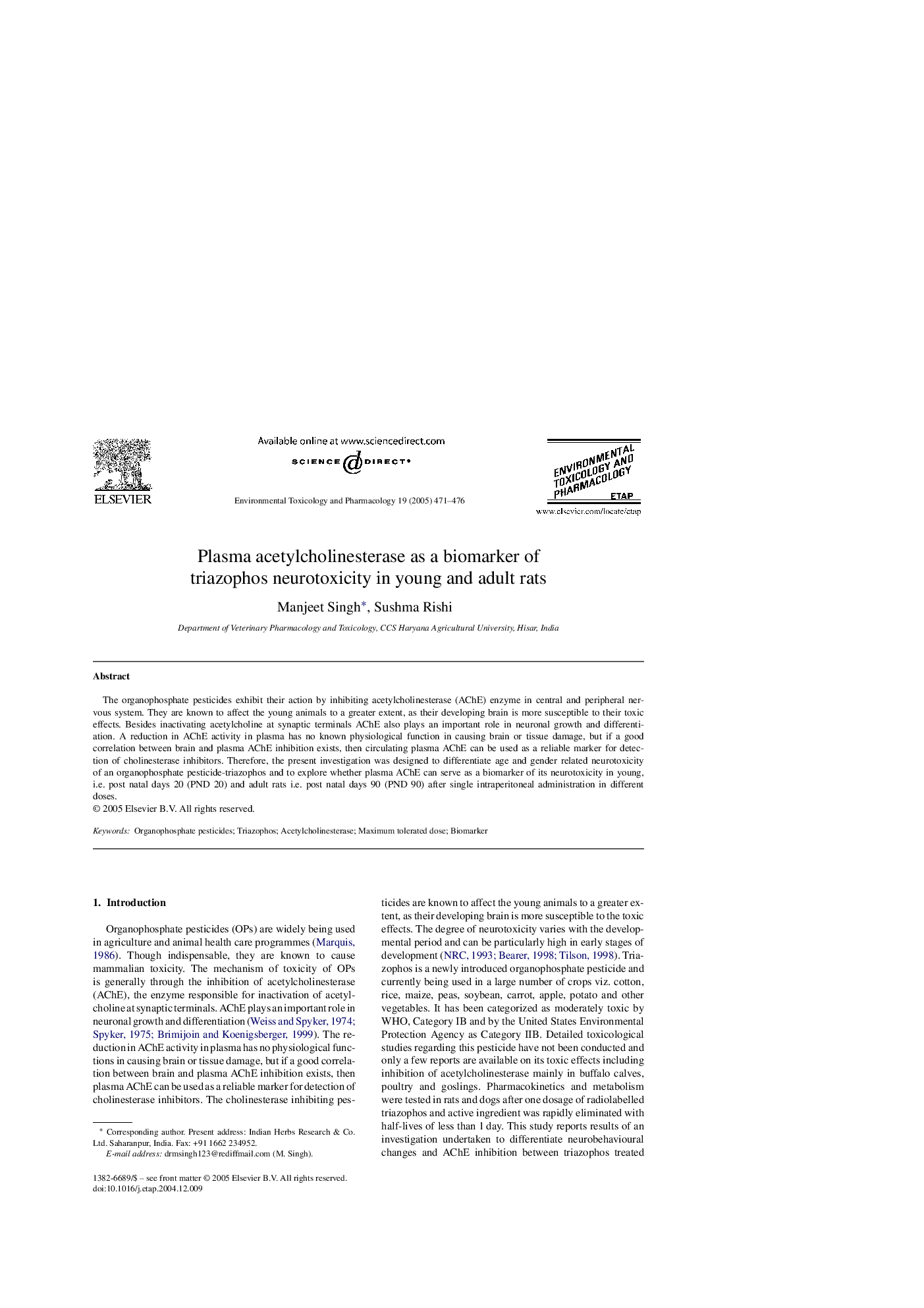| Article ID | Journal | Published Year | Pages | File Type |
|---|---|---|---|---|
| 9030068 | Environmental Toxicology and Pharmacology | 2005 | 6 Pages |
Abstract
The organophosphate pesticides exhibit their action by inhibiting acetylcholinesterase (AChE) enzyme in central and peripheral nervous system. They are known to affect the young animals to a greater extent, as their developing brain is more susceptible to their toxic effects. Besides inactivating acetylcholine at synaptic terminals AChE also plays an important role in neuronal growth and differentiation. A reduction in AChE activity in plasma has no known physiological function in causing brain or tissue damage, but if a good correlation between brain and plasma AChE inhibition exists, then circulating plasma AChE can be used as a reliable marker for detection of cholinesterase inhibitors. Therefore, the present investigation was designed to differentiate age and gender related neurotoxicity of an organophosphate pesticide-triazophos and to explore whether plasma AChE can serve as a biomarker of its neurotoxicity in young, i.e. post natal days 20 (PND 20) and adult rats i.e. post natal days 90 (PND 90) after single intraperitoneal administration in different doses.
Related Topics
Life Sciences
Environmental Science
Health, Toxicology and Mutagenesis
Authors
Manjeet Singh, Sushma Rishi,
